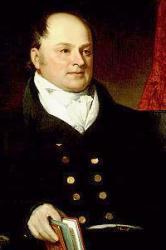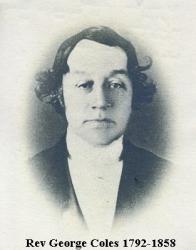Planning worship?
Check out our sister site, ZeteoSearch.org,
for 20+ additional resources related to your search.
- |
User Links
Search Results
Lord of All Worlds
Author: John Q. Adams, 1767-1848 Meter: 8.8.8.8 Appears in 2 hymnals First Line: Lord of all worlds, let thanks and praise Lyrics: 1. Lord of all worlds, let thanks and praise
To Thee forever fill my soul;
With blessings Thou hast crowned my days,
My heart, my head, my hand control.
O, let no vain presumptions rise,
No impious murmur in my heart,
To crave the boon Thy will denies,
Or shrink from ill Thy hands impart.
2. Thy child am I, and not an hour,
Revolving in the orbs above,
But brings some token of Thy power,
But brings some token of Thy love;
And shall this bosom dare repine,
In darkness dare deny the dawn,
Or spurn the treasures of the mine,
Because one diamond is withdrawn?
3. The fool denies, the fool alone,
Thy being, Lord, and boundless might;
Denies the firmament, Thy throne,
Denies the sun’s meridian light;
Denies the fashion of his frame,
The voice he hears, the breath he draws;
O idiot atheist! to proclaim
Effects unnumbered without cause!
4. Matter and mind, mysterious one,
Are man’s for threescore years and ten;
Where, ere the thread of life was spun?
Where, when reduced to dust again?
All seeing God, the doubt suppress;
The doubt Thou only canst relieve;
My soul Thy Savior Son shall bless,
Fly to Thy Gospel, and believe. Used With Tune: DUANE STREET
Lord of All Worlds
DUANE STREET
Meter: 8.8.8.8 Appears in 150 hymnals Composer and/or Arranger: George Coles Tune Key: A Flat Major Incipit: 51331 24423 17125 Used With Text: Lord of All Worlds
DUANE STREET
Lord of all worlds, let thanks and praise
Author: John Quincy Adams Hymnal: The Christian Psalter #d307 (1841)
Lord of all worlds, let thanks and praise
Lord of All Worlds
Author: John Q. Adams, 1767-1848 Hymnal: The Cyber Hymnal #3578 Meter: 8.8.8.8 First Line: Lord of all worlds, let thanks and praise Lyrics: 1. Lord of all worlds, let thanks and praise
To Thee forever fill my soul;
With blessings Thou hast crowned my days,
My heart, my head, my hand control.
O, let no vain presumptions rise,
No impious murmur in my heart,
To crave the boon Thy will denies,
Or shrink from ill Thy hands impart.
2. Thy child am I, and not an hour,
Revolving in the orbs above,
But brings some token of Thy power,
But brings some token of Thy love;
And shall this bosom dare repine,
In darkness dare deny the dawn,
Or spurn the treasures of the mine,
Because one diamond is withdrawn?
3. The fool denies, the fool alone,
Thy being, Lord, and boundless might;
Denies the firmament, Thy throne,
Denies the sun’s meridian light;
Denies the fashion of his frame,
The voice he hears, the breath he draws;
O idiot atheist! to proclaim
Effects unnumbered without cause!
4. Matter and mind, mysterious one,
Are man’s for threescore years and ten;
Where, ere the thread of life was spun?
Where, when reduced to dust again?
All seeing God, the doubt suppress;
The doubt Thou only canst relieve;
My soul Thy Savior Son shall bless,
Fly to Thy Gospel, and believe. Languages: English Tune Title: DUANE STREET
Lord of All Worlds
John Quincy Adams

1767 - 1848 Person Name: John Q. Adams, 1767-1848 Author of "Lord of All Worlds" in The Cyber Hymnal Adams, John Quincy. (Braintree, Mass., July 11, 1767-February 21, 1848, Washington, D.C.). Most of Adams' verse, both religious and secular, was written after he had left the Presidency. In his later years he composed a metrical version of the Psalms, best described as a free rendering in fairly good verse of what he felt was the essential idea of each Psalm. When his minister, William P. Lunt, of the First Parish, (Unitarian), Quincy, Mass., undertook the preparation of his hymn book The Christian Psalter, Mrs. Adams put the manuscript of her husband's metrical Psalms into Lunt's hands, and the latter included 17 of them in his book, and five other hymns by his distinguished parishioner.
The effect on Adams is recorded in a moving entry in his Journal which reveals an aspect of his character quite unknown to those who regarded him as an opinionated and uncompromising though sincere and upright politician. He wrote on June 29, 1845:
"Mr. Lunt preached this morning, Eccles. III, 1. For everything there is a season. He had given out as the first hymn to be sung the 138th of the Christian Psalter, his compilation and the hymn-book now used in our church. It was my version of the 65th Psalm; and no words can express the sensations with which I heard it sung. Were it possible to compress into one pulsation of the heart the pleasure which, in the whole period of my life, I have enjoyed in praise from the lips of mortal man, it would not weigh a straw to balance the ecstasy of delight which streamed from my eyes as the organ pealed and the choir of voices sung the praise of Almighty God from the soul of David, adapted to my native tongue by me. There was one drawback. In the printed book, the fifth line of the second stanza reads, "The morning's dawn, the evening's shade," and so it was sung, but the corresponding seventh line of the same stanza reads, "The fields from thee the rains receive," totally destroying the rhyme. I instantly saw that the fifth line should read, "The morning's dawn, the shades of eve," but whether this enormous blunder was committed by the copyist of the pressman I am left to conjecture."
After Adams' death his verses, both religious and secular, were published in a small volume entitled Poems of Religion and Society, New York, 1848, which ran to a fourth edition in 1854. This collection included the five hymns and 17 metrical Psalms printed in the Christian Psalmist, unchanged except that the opening line of each psalm has been substituted for the number of the psalm as its heading. Nor was the misprint which Adams lamented amended.
--Henry Wilder Foote, DNAH Archives
=================================
Adams, John Quincy. Born at Braintree (afterwards called Quincy), Mass., 1767, was a son of President Adams. After graduating at Harvard College he was, from 1794 to 1801, minister to the Netherlands, to England, and to Prussia. In 1806 he was appointed Professor of Rhetoric in Harvard College; in 1809 minister to Russia; 1817 Secretary of State; and, from 1824 to 1829, President of the United States. In 1831 he was elected a Member of the House of Representatives. Died suddenly, Feb. 21, 1848. His high position and principle are well known, as also the incidents of his political life. He was a member of the Unitarian body. His Memoir, by the Hon. Josiah Quincy, was published soon after his death, and also his Poems of Religion and Society, N. Y., 1848 (4th ed., 1854). He wrote, but never printed, an entire Version of the Psalms, seventeen of which, with five hymns, were inserted by his pastor, Dr. Lunt, in the Christian Psalmist, 1841. Of these the following are still in use:—
1. Sure to the mansions of the blest. [Burial.] This is part of a piece of 20 stanzas, which appeared in the Monthly Anthology and Boston Review, Jan., 1807. It is entitled "Lines addressed to a mother on the death of two infants, 19th Sept. 1803, and 19th Decr., 1806."
2. Alas! how swift the moments fly. [Time.] Sometimes given as "How swift, alas, the moments fly," was written for the 200th anniversary of the First Congregational Church, Quincy, Sept. 29, 1839.
3. Hark! 'tis the holy temple bell. [Sunday.] Of these Nos. 2 and 3 are found in Lyra Sacra Americana and 2 in Putnam's Singers and Songs of the Liberal Faith, 1875. [Rev. F. M. Bird, M.A.]
-- John Julian, Dictionary of Hymnology (1907)
John Quincy Adams
George Coles

1792 - 1858 Composer of "DUANE STREET" in The Cyber Hymnal Rv George Coles United Kingdom 1792-1858. Born at Stewkley, England, he was converted at age 13 under John Wesley's ministry. He began preaching at age 22 and emigrated to America in 1818. He was a Methodist supply preacher on the Long Island circuit in NY and CT. The following year he became a member of the NY Conference and served several of the larger churches for several years. He married Belinda Wilson in 1820, and they had five children. They lived in several towns in NY during their lives. He served as editor of the “Christian Advocate and Journal” for 12 years, and the “Sunday School Advocate” for several years thereafter. He was a musician of some ability, and a good singer. He loved talking with children and often drew them around him. He authored “A concordance of the Holy Scriptures”, “Heroinces of Methodism”, and fiour other books. He died and is buried in Somers, NY. He kept journals, covering 50 years of activities.
John Perry
George Coles


 My Starred Hymns
My Starred Hymns


